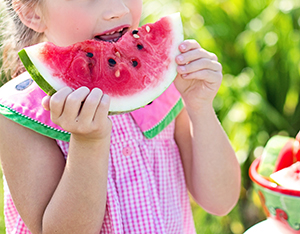
Coronavirus. We’ve all been hearing a lot about it—and seeing some pretty dramatic images and stats in the news—but what exactly is it, and how concerned should we be?
By definition, a coronavirus is common virus that causes relatively harmless cold symptoms—irritation of the nose, sinuses, upper throat. Some types can be particularly deadly, however—MERS and SARS, for instance. The one everyone is talking about now, that recently originated in Wuhan, China, is called 2019 novel coronavirus, and is infecting thousands more in that region every day. In the United States, there are currently only a handful of cases, but with over 500 deaths and 28,000 cases worldwide (primarily in China), concern is growing.
Here’s what parents should know, how you can protect your kids, and other advice from Richard Martinello, MD., a Yale Medicine infectious disease specialist who is the medical director of the Infection Prevention Department at Yale New Haven Health.
How worried should parents be about Coronavirus?
There is no need to panic or change any routines at this time. It is important to ensure that you take actions and practice good behaviors to stay healthy. Since we expect the flu virus to continue circulate at least through April, if you or a family member is not yet vaccinated, getting them vaccinated is the single best action to take. In addition, getting into good habits with hand washing, keeping fingers away from ones face and ensuring family members stay home when there sick also helps to keep a community healthy.
How is it spread?
It is not known exactly how the novel coronavirus is spread, but research on this topic is underway. We do know other coronaviruses can be spread both by respiratory droplets and from contaminated surfaces by hands.
How can it be prevented—are masks a good idea?
While wearing a mask may provide some protection from respiratory viruses, there are other actions which may be more effective. First, avoid persons who may be sick. Sometimes, on elevators or subway cars for example, this may not be possible, but when it is in your control. Staying a distance from those ill can help. Second, many respiratory viruses are transmitted from contaminated surfaces by our own hands to our eyes and nose. Keeping your hands and fingers away from your face may be one of the most effective ways to keep from getting sick. If you must touch your eyes or nose, washing your hands carefully with soap and water or using an alcohol based hand rub can help to destroy germs on your hands. One point for caution if you do choose to wear a mask is that one generally touches their face while putting the mask on and taking it off. And, since the mask can irritate one’s face, people wearing masks for long periods often touch their face- this can actually increase their risk for getting sick.
Is Coronavirus deadlier than the flu?
So far, the data has suggested that it is more deadly than seasonal flu and more contagious. However, we expect that as more data becomes available, we’ll have a more precise understanding of the spectrum of disease and the severity of disease from the novel coronavirus.
In the grand scheme of risk, should we be more worried about the flu than Coronavirus?
Right now, we really need to continue to focus on flu. We do need to follow the novel coronavirus carefully, but flu remains and is having a significant impact on our health.
Why has Coronavirus been so deadly in China, and do you expect it to be as deadly here?
It’s possible that our experience here will be similar to what China is now experiencing. However, as the weather starts to get warmer, that may impact how easily the novel coronavirus can spread, impacting what we experience.
Which kids/families are most at risk for these illnesses?
We know that being in any circumstance where there is close contact with people is a risk for the spread of respiratory viruses and the larger the group, the greater the risk. Places such as households, schools, daycare, work, etc. all have some degree of risk whether it is for flu, the novel coronavirus or another respiratory virus.
For more information:
https://www.yalemedicine.org/stories/2019-novel-coronavirus/
Meet Natalie
Natalie lives in Houston with her family of four!
5 Tips to Boost the Nutrition in Your Kid’s Meals
Cooking healthy meals that are delicious and satisfying can be hard work for us moms! Lately, I’ve been struggling to curate a healthy breakfast, lunch and dinner that include all of the important nutrients and vitamins, only to have my kids come to the table with a stubborn palate.


